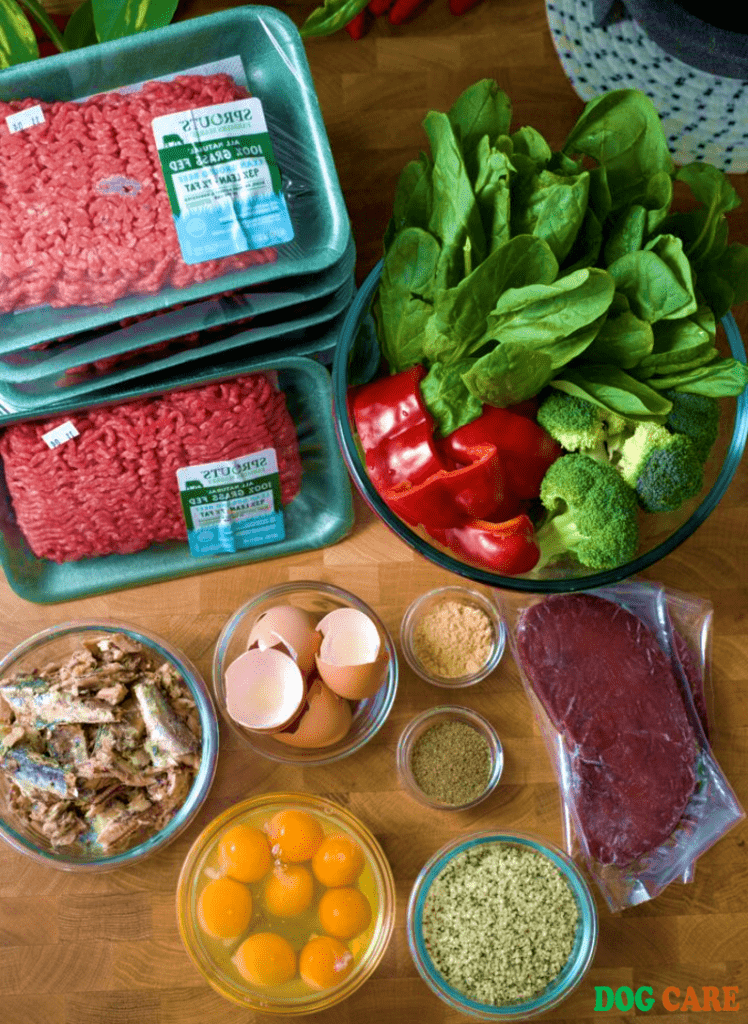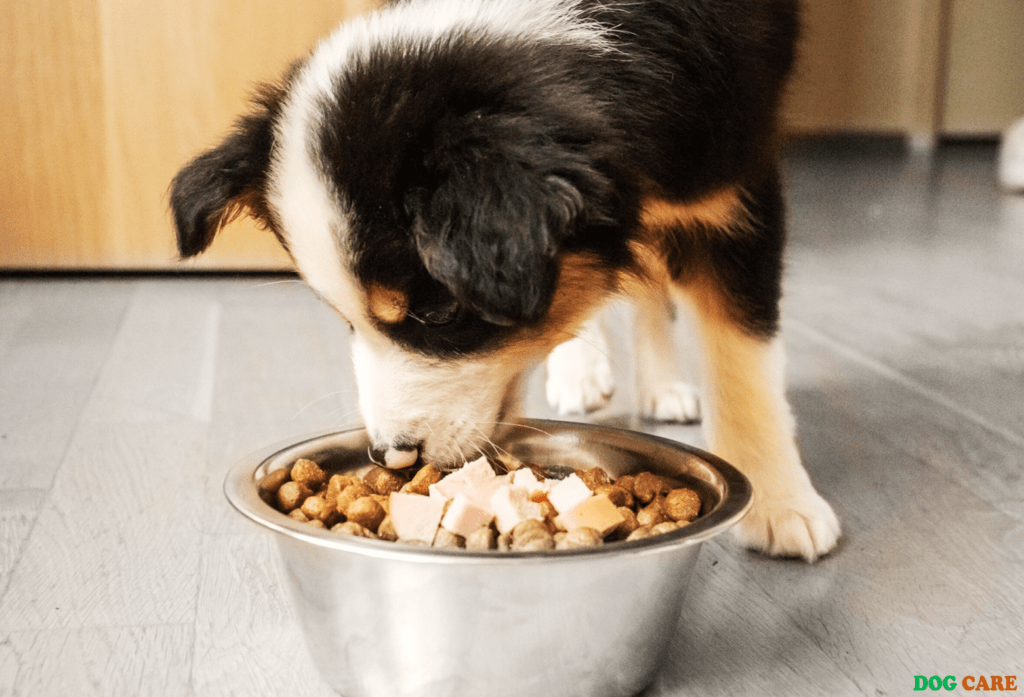Is Lamb Dog Food Good for Dogs : Yes, lamb dog food can be good for dogs if they are not allergic to lamb. It is a high-quality source of protein and nutrients for dogs, providing essential amino acids and vitamins.
Additionally, lamb is easily digestible for most dogs, making it a suitable option for dogs with sensitive stomachs. The natural flavors of lamb can also be appealing to picky eaters, encouraging them to eat a balanced diet. However, it is important to introduce lamb gradually to monitor for any adverse reactions.
Furthermore, lamb dog food can be a beneficial choice for dogs with food sensitivities or allergies, providing a hypoallergenic alternative to common protein sources. Incorporating lamb dog food into a dog’s diet can offer various health benefits and support their overall well-being.
Understanding The Benefits Of Lamb Dog Food
Many pet owners are turning to lamb dog food as a premium option for their furry companions. Understanding the benefits of this type of food can help you make an informed decision about your dog’s diet. From being a high-quality protein source to being easily digestible, lamb dog food has several advantages for your pup’s health and well-being.
High-quality Protein Source
Lamb is considered a high-quality protein source for dogs. It contains all the essential amino acids needed for muscle development and overall growth. Additionally, lamb meat is particularly beneficial for dogs with food sensitivities to more common protein sources like chicken or beef. This makes it a versatile option for many dogs, particularly those with digestive issues or allergies.
Rich In Essential Nutrients
Lamb dog food is rich in essential nutrients such as vitamins, minerals, and omega-3 fatty acids. These nutrients are beneficial for your dog’s overall health, including their skin, coat, and immune system. The quality of the nutrients in lamb meat can contribute to your dog’s overall well-being, ensuring they receive a well-rounded diet.
Easily Digestible
Lamb dog food is known for being easily digestible, making it an ideal choice for dogs with sensitive stomachs. The protein in lamb meat is gentle on the digestive system, reducing the likelihood of stomach upset and digestive issues. This can be particularly beneficial for dogs suffering from gastrointestinal problems or frequent food allergies.
Potential Allergies And Sensitivities
While lamb offers various benefits, it’s essential to note that some dogs may have allergies or sensitivities to this protein source. If your dog has a known sensitivity to lamb, it’s crucial to consult with a veterinarian before making it a regular part of their diet. Monitoring your dog for any signs of allergic reactions is essential when introducing new food into their diet.
Factors To Consider When Choosing Lamb Dog Food
When it comes to choosing the best dog food for your beloved canine companion, several factors need to be considered to ensure their health and well-being. Lamb dog food can be a suitable option for many dogs, but it’s important to carefully assess the specific needs and characteristics of your pet before making a decision. Below are some crucial considerations to keep in mind when selecting lamb dog food:
Quality Of Ingredients
The quality of ingredients in dog food is paramount to your dog’s health. When evaluating lamb dog food, look for high-quality, natural ingredients without artificial additives, fillers, or by-products. Opt for brands that prioritize whole, real lamb meat as the primary ingredient, and avoid products with excessive grains and preservatives.
Nutritional Balance
Nutritional balance is crucial for fulfilling your dog’s dietary requirements. Ensure that the lamb dog food you choose provides a well-balanced blend of protein, carbohydrates, healthy fats, vitamins, and minerals. Look for formulations that meet the nutritional standards set by organizations such as the Association of American Feed Control Officials (AAFCO) to ensure a complete and balanced diet for your dog.
Individual Dog’s Needs
Consider your individual dog’s needs when selecting lamb dog food. Factors such as age, activity level, breed, and any specific dietary sensitivities or health conditions should be taken into account. Some dogs may thrive on lamb-based diets, while others may require alternative protein sources. Consult with your veterinarian to determine the most suitable food for your dog’s unique needs.
Is Lamb Dog Food Good for Dogs ?
Brand Reputation And Reviews
Brand reputation and customer reviews play a vital role in choosing the right lamb dog food. Research the reputation of the brand, its sourcing practices, manufacturing standards, and commitment to quality. Additionally, read customer reviews to gauge the experiences of other dog owners with the specific lamb dog food you are considering. This can provide valuable insights into the product’s efficacy and potential benefits for your dog.
Incorporating Lamb Dog Food In Your Dog’s Diet
Introducing lamb dog food into your dog’s diet can provide a variety of health benefits, including a rich source of protein, essential amino acids, and vitamins. However, transitioning your dog to a new diet requires careful consideration and monitoring to ensure it is suitable for their individual needs and well-being.
Gradual Transition
When incorporating lamb dog food into your dog’s diet, it is crucial to make the transition gradually to prevent any digestive issues. Start by mixing small amounts of lamb dog food with your dog’s current food, gradually increasing the proportion of lamb food over a period of 7-10 days. This gradual transition allows your dog’s digestive system to adjust to the new diet, minimizing the risk of gastrointestinal upset.
Monitoring Health And Wellness
As your dog adapts to the new diet, it is essential to monitor your dog’s overall health and well-being. Pay close attention to their energy levels, coat condition, and stool quality. These indicators can provide insight into whether the lamb dog food is suiting your dog and meeting their nutritional requirements. If you notice any adverse changes, it may be necessary to reassess the composition of their diet or seek professional advice.
Consulting With A Veterinarian
Prior to making any significant changes to your dog’s diet, it is advisable to consult with a veterinarian. A qualified professional can offer personalized recommendations and ensure the lamb dog food aligns with your dog’s specific dietary needs and health considerations. Their guidance can help you make informed decisions and provide the best possible care for your dog.
Recognizing Signs Of Allergic Reactions
Although lamb is a high-quality protein source, some dogs may have allergic reactions to certain ingredients in lamb dog food. It is crucial to be vigilant for any signs of allergic reactions, such as itching, gastrointestinal distress, or skin irritations. If you suspect an allergic reaction, promptly discontinue the lamb dog food and seek advice from your veterinarian to determine alternative dietary options for your dog.

Comparing Lamb Dog Food With Other Protein Sources
When it comes to choosing the best protein source for your canine companion, it’s important to consider the nutritional benefits and potential drawbacks of different options. Comparing lamb dog food with other protein sources can help you make an informed decision about what’s best for your dog’s diet.
Is Lamb Dog Food Good for Dogs ?
Lamb Vs. Chicken Dog Food
Both lamb and chicken are excellent sources of protein for dogs. However, lamb dog food can be a great option for dogs with food sensitivities or allergies, as it is less likely to trigger adverse reactions compared to chicken. Additionally, lamb is rich in essential amino acids and is easily digestible, making it an ideal protein source for dogs with sensitive stomachs.
Lamb Vs. Beef Dog Food
Beef and lamb are both high-quality protein sources that can contribute to a well-balanced canine diet. One advantage of lamb dog food over beef is that it tends to be lower in saturated fats, making it a healthier option for dogs prone to weight gain or obesity. Lamb also offers a unique flavor profile that can entice picky eaters, making it a valuable alternative to beef for dogs with discerning palates.
Lamb Vs. Fish Dog Food
When comparing lamb dog food with fish-based options, it’s important to consider the omega-3 fatty acid content. While fish is renowned for its omega-3 fatty acids, lamb also provides essential nutrients like zinc and iron that contribute to overall canine health. Additionally, lamb can be a suitable choice for dogs with seafood allergies, offering a novel protein source that doesn’t trigger adverse reactions.
Addressing Common Misconceptions About Lamb Dog Food
Lamb As An Allergen In Dogs
It is a common misconception that lamb dog food is a suitable option for dogs with allergies. While lamb is often touted as a hypoallergenic meat for dogs, it is not guaranteed to be free from triggering allergic reactions in all canines. Just like any other protein source, some dogs may be allergic to lamb.
Concerns About Taurine Deficiency
There have been concerns about lamb dog food leading to taurine deficiency in dogs. Taurine is an essential amino acid for dogs, and deficiencies can lead to serious health issues. However, lamb meat itself contains a moderately high level of taurine, making it a reasonable source for meeting your dog’s nutritional needs. Ensure the overall diet is well-balanced to prevent any potential taurine deficiencies.
Impact On Dog’s Coat And Skin Health
Lamb dog food is often praised for its potential benefits in improving a dog’s coat and skin health due to its rich content of omega-3 fatty acids. These essential nutrients can help promote healthy skin and a shiny coat. However, individual dog’s responses to different protein sources can vary, so it may not guarantee the same results for all dogs.
Sustainability And Environmental Considerations
When considering lamb as a protein source for dog food, it’s essential to address sustainability and environmental considerations. Lamb production can have a significant environmental impact, particularly in terms of greenhouse gas emissions and land usage. Sustainable sourcing and responsible farming practices play a crucial role in minimizing the environmental footprint of lamb-based dog food.
Is Lamb Dog Food Good for Dogs ?
Frequently Asked Questions
Question 01 :- Is Lamb Dog Food Good For Dogs With Allergies?
Yes, lamb dog food is a good option for dogs with allergies. Lamb is a hypoallergenic protein source and can be beneficial for dogs with sensitivities to other proteins like chicken or beef.
Question 02 :- Can Lamb Dog Food Help With Sensitive Stomachs In Dogs?
Absolutely. Lamb dog food is often recommended for dogs with sensitive stomachs. Its easily digestible nature and gentle properties make it a suitable choice for dogs who struggle with digestive issues.
Question 03 :- Is Lamb Dog Food Suitable For Dogs With Picky Eating Habits?
Yes, many dogs find lamb dog food to be highly palatable. Its savory taste and tender texture can often entice picky eaters, making it a popular choice for pet owners dealing with finicky eaters.
Conclusion
Feeding your dog lamb dog food can be a nutritious and enjoyable option. Its high-quality protein and essential nutrients can support your dog’s overall health and well-being. However, it’s important to consult with your vet to ensure it meets your dog’s specific dietary needs.
Embracing variety in your dog’s diet can also be beneficial.


